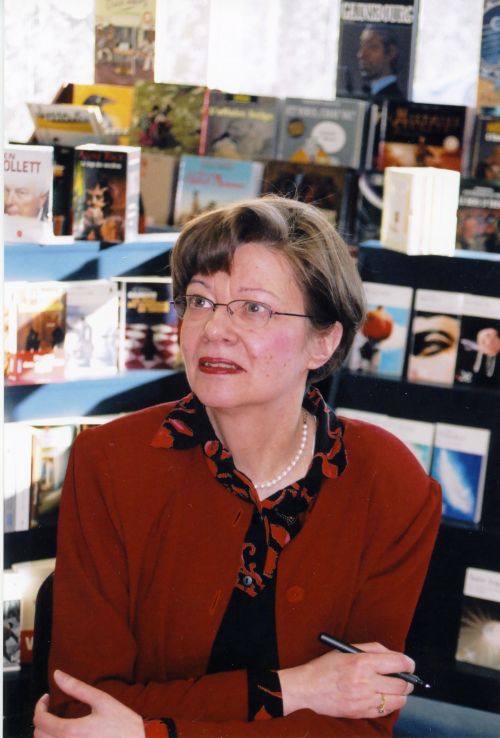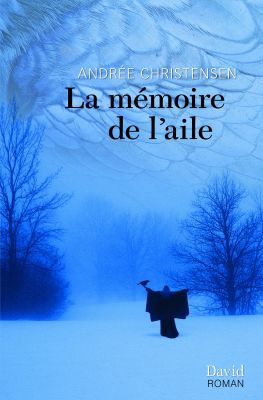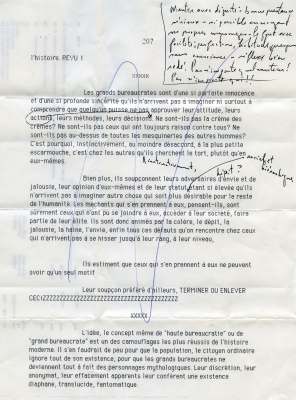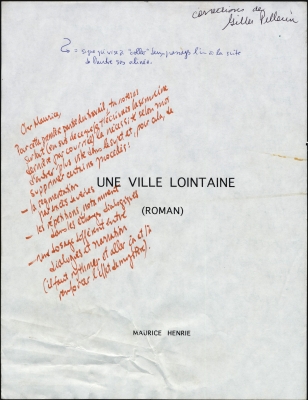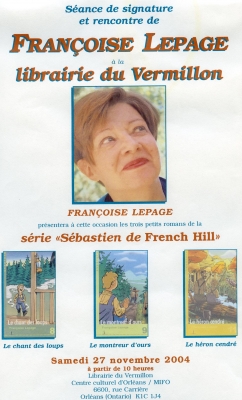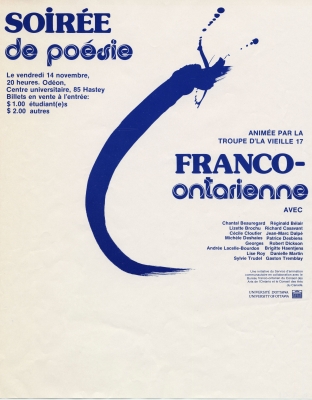Starting in the 1970s, Ottawa literature stands out for its diversity. Poems and novels mingle with theatre and young adult literature, as well as short stories. While some authors continue to take a realistic approach, others are inspired by myth or delve into the future.
Vanier’s Andrée Christensen is a writer who works in multiple genres. Mythology is one of her main sources of inspiration, starting with her first collection of poetry, Châtiment d’Orphée (1990). The richness of her writing makes an invaluable contribution to Franco-Ontarian literature. For François Paré, a specialist in the field, “it is clear that the esoteric and mystical traditions behind this poetry enable the author to reaffirm the thematic challenges of this genre.”1 So it is with Christensen’s two novels – Depuis toujours j’entendais la mer (2007) and La mémoire de l’aile (2010) – both one of a king, as evidenced by the numerous award nominations and actual awards the author has earned. Christensen is also a visual artist; her poems are often accompanied by her photos or collages.
Maurice Henrie also pursues his writing career from Ottawa. Although he is a civil servant like many Franco-Ontarian authors before him, he distinguishes himself by drawing heavily on his work environment to write his books. His two satirical essays on the public service, La vie secrète des grands bureaucrates (1989) and Le petit monde des grands bureaucrates (1992) bring him renown. But Henrie also writes novels and short stories. He is by far the most prolific Franco-Ontarian short story writer. In his short story collections, Henrie often dwells on trivial moments of everyday life: “His words take a magnifying glass to what appears to be insignificant, but finally gives full weight to existence.”2 Many of his works have won the Prix du livre d’Ottawa. In 2002 he is awarded Radio-Canada’s Prix des lecteurs for his novel Une ville lointaine.
It would not do to overlook the young adult novels of Françoise Lepage, a pioneer of this literary genre in French Ontario. Originally from France, the author settles in Ottawa in the late 1970s, where she quickly becomes part of the literary community. Her best-known book, Poupeska (2006) – the story of a young girl bullied at school, told to make young readers aware of this difficult reality – is a finalist for a Governor General’s Award and is honoured with the Trillum Book Award. To assure the development of youth literature in the Canadian Francophone community, Lepage coordinates the “Cavales” collection of Éditions L’interligne, dedicated to children’s books. She also publishes several scholarly works on the subject.
1 François Paré, “La poésie franco-ontarienne,” in Lucie Hotte and Johanne Melançon (eds.), Introduction à la littérature franco-ontarienne, Sudbury, Éditions Prise de parole, “Agora” collection, 2010, p. 140 (translated from the original).
2 Michel Lord, “Parcours labyrinthique de la nouvelle franco-ontarienne en tension entre la douleur et le bonheur,” in Lucie Hotte and Johanne Melançon (eds.), Introduction à la littérature franco-ontarienne, Sudbury, Éditions Prise de parole, “Agora” collection, 2010, p. 242 (translated from the original).
Françoise Lepage, at the launch of her book Poupeska, at the Librairie du Centre franco-ontarien de ressources pédagogiques (CFORP), Ottawa, March 4, 2006.
University of Ottawa, CRCCF, Fonds Françoise-Lepage (P372), Ph294-1/5.
